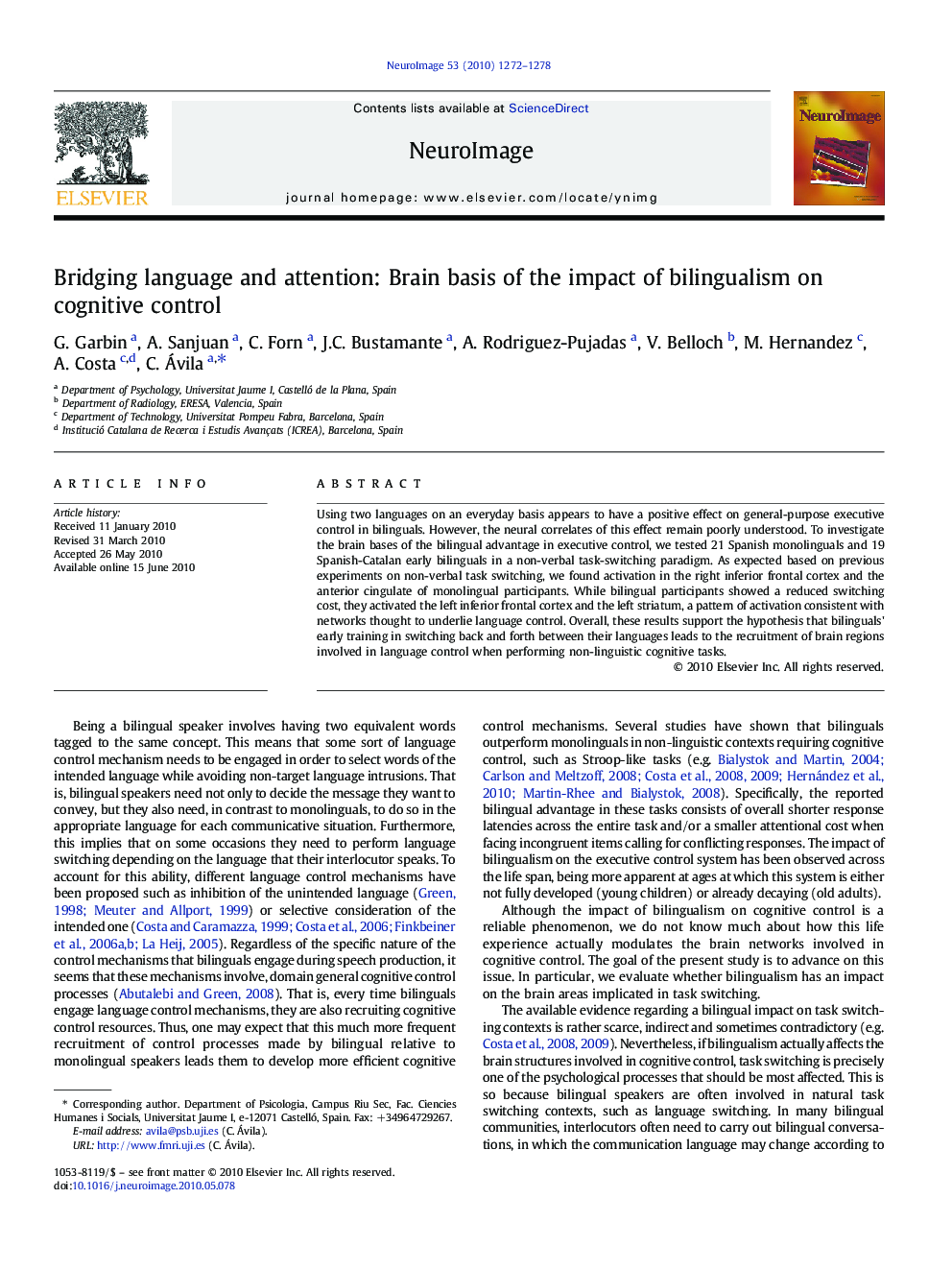| Article ID | Journal | Published Year | Pages | File Type |
|---|---|---|---|---|
| 3072311 | NeuroImage | 2010 | 7 Pages |
Using two languages on an everyday basis appears to have a positive effect on general-purpose executive control in bilinguals. However, the neural correlates of this effect remain poorly understood. To investigate the brain bases of the bilingual advantage in executive control, we tested 21 Spanish monolinguals and 19 Spanish-Catalan early bilinguals in a non-verbal task-switching paradigm. As expected based on previous experiments on non-verbal task switching, we found activation in the right inferior frontal cortex and the anterior cingulate of monolingual participants. While bilingual participants showed a reduced switching cost, they activated the left inferior frontal cortex and the left striatum, a pattern of activation consistent with networks thought to underlie language control. Overall, these results support the hypothesis that bilinguals' early training in switching back and forth between their languages leads to the recruitment of brain regions involved in language control when performing non-linguistic cognitive tasks.
